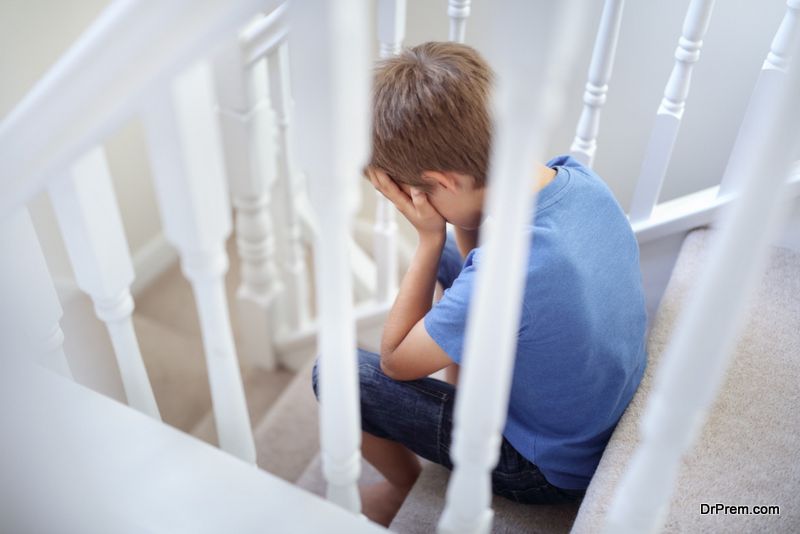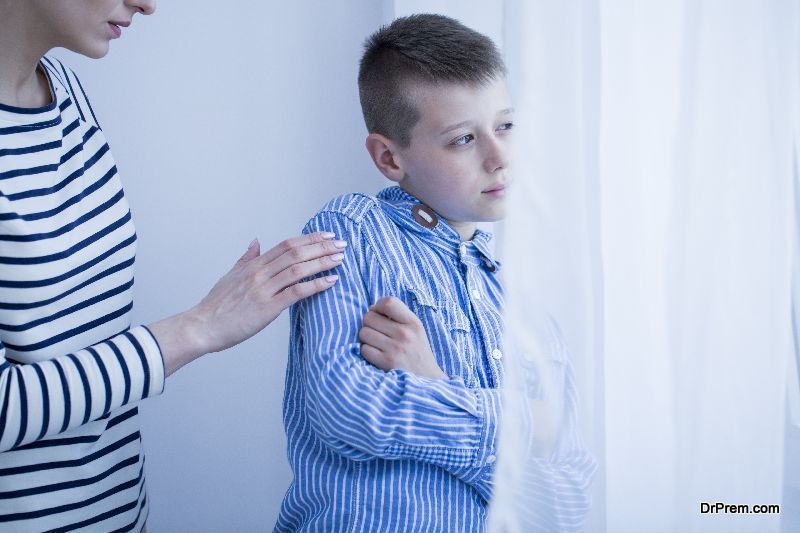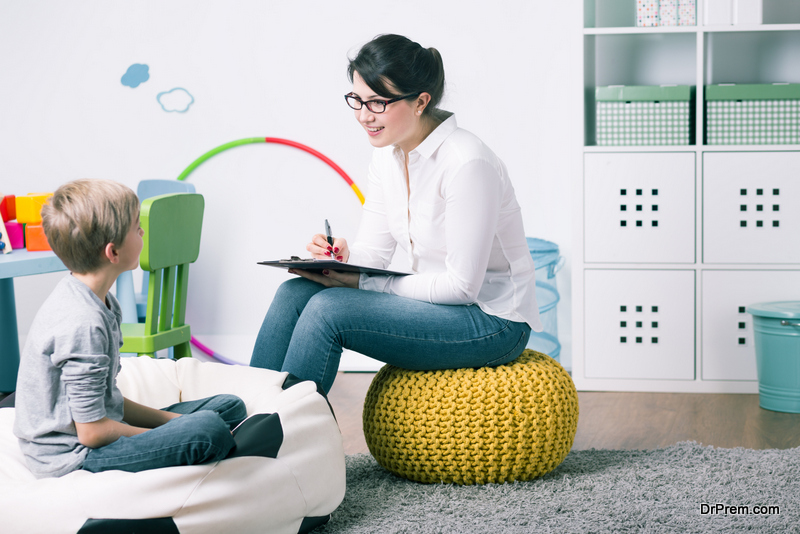When you get divorced, you experience a whirlwind of emotions — but so do your children. While it’s crucial to care for your mental well-being, you need to help them navigate a stormy sea of feelings when yours might feel raw, too.
Fortunately, you can take common-sense measures to safeguard the mental health of your children during this tumultuous time. They will look to you to serve as their lighthouse, so guide them home to their new reality with these tips.
1. Reassure Your Child Often
 Your child might think, “If mom or dad stopped loving each other, what’s to say they won’t decide they don’t love me anymore?” This uncertainty can cause considerable stress in youth. Reassure your child regularly that you will never stop caring for them, and that you will be there for them for life. You can use phrases such as, “I’m grateful for you,” and “the family would not be the same without you” to calm their fears.
Your child might think, “If mom or dad stopped loving each other, what’s to say they won’t decide they don’t love me anymore?” This uncertainty can cause considerable stress in youth. Reassure your child regularly that you will never stop caring for them, and that you will be there for them for life. You can use phrases such as, “I’m grateful for you,” and “the family would not be the same without you” to calm their fears.
2. Maintain Consistency
Once you and your co-parent decide to separate, you need to create and stick to a plan for custody and visitation. Consistency is critical during this time because so much of your child’s life is in flux. If you and your spouse have such a contentious relationship that communicating schedules proves nearly impossible, consider involving a neutral third-party mediator to help.
3. Watch for Signs Your Child is Struggling
 You know your child better than anyone, but when your emotions feel raw, you might overlook some of the signs that they aren’t handling the changes very well. Keep your eyes open to the following behaviors.
You know your child better than anyone, but when your emotions feel raw, you might overlook some of the signs that they aren’t handling the changes very well. Keep your eyes open to the following behaviors.
- Mood swings: Expect emotional breakdowns when you deliver the news. However, if your child remains moody for weeks, that’s a cry for help.
- Academic and behavioral problems: Children who never brought home less than a B might bring back a progress report with Cs and Ds. You might get a call from the teacher, too.
- Lack of interest and cooperation: Your child might withdraw into their room and refuse to socialize with friends and family. If they previously helped with chores cheerfully, you could find them dragging their feet.
4. Don’t Use Your Children as Messengers
One reason to avoid using your children as messengers is to improve the clarity of communication. However, doing so can also burden their mental health. Even a simple, “tell dad I’ll be 15 minutes late,” drags children into the center of the conflict and makes them feel as if they have to choose sides. It takes the same time and energy to text the message directly to your co-parent.
5. Legitimize Your Child’s Feelings
 Sometimes, when you grow exasperated, you might feel tempted to blurt something harmful like, “You think you have it bad? I have to deal with X.” However, doing so invalidates your child’s emotions and makes them feel as if they’re defective for feeling the way they do. Take the time to validate their experience by saying things such as, “I understand that you feel sad right now.” Sitting with them while they vent or cry also helps them realize that the roller coaster they feel is natural.
Sometimes, when you grow exasperated, you might feel tempted to blurt something harmful like, “You think you have it bad? I have to deal with X.” However, doing so invalidates your child’s emotions and makes them feel as if they’re defective for feeling the way they do. Take the time to validate their experience by saying things such as, “I understand that you feel sad right now.” Sitting with them while they vent or cry also helps them realize that the roller coaster they feel is natural.
6. Avoid Venting Frustrations to Children
Divorce is a stressful period, and you may feel like you need to scream at times — no matter who is listening. However, your children are not tiny therapists. Venting your frustrations to them makes them feel responsible for fixing what’s wrong. When paired with the anxiety that they already feel due to the separation, this dynamic can foster codependency and lead to issues in your little one’s future relationships.
7. Keep the Discussion Ongoing
 The discussion about your divorce doesn’t end when you break the news — it only begins. Schedule a weekly check-in with your child where they can discuss their feelings openly. During this time, listen to them. Ask them how they’re coping with all the changes in their life, and inquire about what you can do to help them adapt. Reassure them that if they need to talk, you are there to listen.
The discussion about your divorce doesn’t end when you break the news — it only begins. Schedule a weekly check-in with your child where they can discuss their feelings openly. During this time, listen to them. Ask them how they’re coping with all the changes in their life, and inquire about what you can do to help them adapt. Reassure them that if they need to talk, you are there to listen.
8. Take Care of Your Health
You can’t pour from an empty pitcher, so take the time to practice self-care during this time with the following habits.
- Avoid drugs and alcohol: Both substances can impact your decision-making and emotional regulation, so put the bottle down — tempting as it is.
- Exercise: Exercise helps relieve anxiety and depression naturally, so strive to get 30 minutes of moderate movement most days of the week.
- Get enough sleep: Keep electronics out of your bedroom, and try to maintain a routine sleep schedule. If chasing Zzz’s proves elusive, make yourself a cup of chamomile or lavender tea and do a quiet activity like reading.
9. Seek Outside Help
 Finally, if you or your child exhibit signs of fraying at the edges, consider seeking therapy. Ask for a referral from a trusted friend or talk to your child’s guidance counselor to find qualified help. Don’t be too proud to admit when you need help — contact your health insurance company or primary care physician for a referral if need be.
Finally, if you or your child exhibit signs of fraying at the edges, consider seeking therapy. Ask for a referral from a trusted friend or talk to your child’s guidance counselor to find qualified help. Don’t be too proud to admit when you need help — contact your health insurance company or primary care physician for a referral if need be.
Keep Your Child Mentally Healthy Through Divorce and Separation
Divorce can traumatize children, but many recover and thrive. The way you manage the situation can safeguard their mental health, so remain calm and follow the above tips.
Article Submitted By Community Writer




